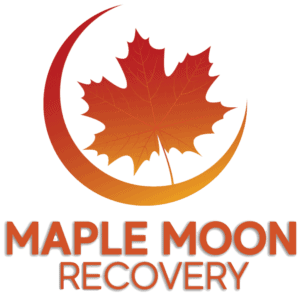Shocking Revelation: Can Benzo Withdrawal Kill You?

Key Points
- Benzodiazepines (commonly known as benzos) can lead to potentially fatal withdrawal symptoms if use is stopped suddenly.
- Seizures, delirium, and severe complications can occur during unmanaged or abrupt benzo withdrawal.
- Inpatient, medically assisted detox and rehab is considered one of the safest and most effective ways to handle benzo addiction.
- Maple Moon Recovery can help individuals navigate a medically approved taper for benzos such as Ativan (lorazepam), Librium, and in rare cases Klonopin; for long-term Xanax users, they may pair a barbiturate (phenobarbital) to ease the transition.
- Professional oversight is essential for preventing complications and improving long-term recovery outcomes.
- Recovery programs, like those at Maple Moon Recovery, provide holistic support, medical monitoring, and therapeutic services to empower lasting healing.
Understanding the Deadly Risks of Benzo Withdrawal
Benzodiazepines, often referred to as “benzos,” are prescription medications used to treat anxiety, insomnia, seizures, and certain other medical conditions. While they can be effective when used properly and under professional supervision, they also carry a high potential for dependency. The question that many people grapple with is: Can benzo withdrawal kill you? The short answer is that yes, it can, especially if withdrawal is unmanaged or done too abruptly. This shocking reality underscores the importance of professional care and a safe environment for anyone looking to stop using benzodiazepines.
In many cases, individuals find themselves unintentionally dependent on benzos due to long-term medical prescriptions or misuse. Because of benzos’ potency, abrupt cessation often triggers severe withdrawal symptoms such as seizures, psychosis, and even life-threatening complications like status epilepticus—a potentially fatal condition if not treated quickly [1]. This is where professional, inpatient medically assisted rehab facilities, such as Maple Moon Recovery, play a lifesaving role. Undergoing monitored detox in a structured setting ensures the person withdrawing receives the medical support necessary to mitigate the intense side effects.
Throughout this article, we will explore the complexities of benzo dependency and withdrawal, and highlight the scientifically grounded methods for safe tapering. Additionally, we will discuss why inpatient care is considered the gold standard for addressing this particular addiction and answer some frequently asked questions. If you or someone you love is struggling, we urge you to take action—do not hesitate to reach out for professional help.
What Makes Benzo Withdrawal Potentially Fatal?
1. Brain Chemistry Alterations
Benzos work by enhancing the effect of gamma-aminobutyric acid (GABA), a neurotransmitter that slows brain activity [2]. Over time, the body adjusts to an elevated level of GABA activity, leading to tolerance and dependency. When benzo use suddenly stops, the brain experiences a significant drop in GABA activity, creating a hyper-excitable state. This imbalance can lead to severe withdrawal symptoms such as tremors, anxiety, panic attacks, elevated heart rate, and in extreme cases, seizures.
2. Risk of Severe Complications
Seizures are one of the most serious risks during benzo withdrawal. These seizures can escalate into status epilepticus, a prolonged seizure state that can cause permanent brain damage or even death [3]. Other severe complications include delirium tremens (DTs) and psychosis-like symptoms, which may render a person unable to distinguish reality from hallucinations. These conditions necessitate rapid medical intervention.
3. Underlying Co-occurring Conditions
Many individuals who use benzos also have underlying conditions such as severe anxiety, depression, or other physical health issues [4]. During withdrawal, these conditions can become aggravated. Without proper medical supervision, these complications can become life-threatening, as mental distress can spiral into self-harm or a dangerous escalation of physical symptoms.
If you or someone you care about is dealing with benzo dependence, reach out now to learn more about how to detox safely.
Why Inpatient Medically Assisted Rehab is Crucial
Continuous Medical Monitoring
One of the most compelling reasons to opt for inpatient rehab is 24/7 medical supervision. This level of care allows healthcare professionals to monitor vital signs, administer necessary medications to control withdrawal symptoms, and quickly respond to emergencies. A sudden onset of seizures or heart complications needs immediate intervention, and inpatient settings are equipped for such emergencies.
Controlled Tapering
A common and effective method for benzo detox is a controlled taper, where the dosage is gradually reduced over time. This approach helps the body adjust slowly to decreasing levels of the medication, minimizing the shock to the central nervous system. At Maple Moon Recovery, for instance, they offer medically approved taper of benzo: atavan lorazepam Librium and rare cases klonopin and also for long term Xanax users they will pair with a barbiturate phenobarbital. This medically guided taper can reduce the intensity of withdrawal symptoms, cutting down the risk of seizures and other severe complications.
Therapeutic Support
Inpatient rehab programs are not solely focused on detoxification. They offer a multifaceted approach, incorporating psychotherapy, group counseling, and life skills education. This comprehensive model addresses the root causes of addiction and equips individuals with coping mechanisms to sustain long-term recovery.
A Protective Environment
Inpatient settings provide a safe, trigger-free environment, isolating individuals from external pressures, enabling them to concentrate entirely on their healing. This protective bubble is particularly crucial during the initial phases of withdrawal when cravings can be intense and relapse poses a grave danger.
Interested in the benefits of inpatient care? Contact our admissions team today to start your journey toward freedom from benzos.
The Role of Maple Moon Recovery in Lifesaving Benzo Detox
Maple Moon Recovery stands out as a beacon of hope for anyone struggling with the insidious grip of benzodiazepine addiction. With a specialized focus on inpatient medically assisted rehab, Maple Moon Recovery utilizes evidence-based approaches to ensure the safest possible withdrawal process.
Personalized Treatment Plans
No two cases of benzo dependency are exactly alike. Maple Moon Recovery’s dedicated team creates customized treatment plans that cater to each individual’s unique physiological and psychological needs. By factoring in the dosage, duration of use, and the presence of any co-occurring disorders, specialists at Maple Moon Recovery can formulate a taper schedule tailored to optimize safety and comfort.
Medically Approved Taper Protocols
One of Maple Moon Recovery’s distinguishing features is the use of clinically approved taper methods and, when necessary, pairing phenobarbital with a benzodiazepine such as Xanax for long-term users. Phenobarbital is a barbiturate that can stabilize the nervous system during withdrawal, helping prevent the violent spikes in excitability that may lead to seizures.
Additionally, Maple Moon Recovery’s medical professionals can incorporate safer benzodiazepine variants such as Ativan (lorazepam), Librium, or, in rare cases, Klonopin as part of a taper strategy. These protocols adhere to recognized medical guidelines for addiction treatment, ensuring individuals receive a safe, ethically guided, and comfortable withdrawal experience.
Comprehensive Recovery Framework
Beyond the medical aspect, Maple Moon Recovery emphasizes therapy, self-awareness, and resilience-building. They incorporate a variety of modalities—cognitive-behavioral therapy, motivational interviewing, and family counseling—to address the psychological underpinnings of addiction. This whole-person approach ensures that once the physical dependency is addressed, individuals have the emotional support and coping strategies to maintain long-term abstinence.
Ready to embark on a journey toward healing? Reach out to Maple Moon Recovery and let us guide you through every step of your recovery.
The Dangers of Self-Detox: Why Professional Care Matters
High Relapse Risk
Without the accountability and support that an inpatient setting provides, individuals attempting to quit benzos on their own face a substantially higher risk of relapse. Psychological cravings and physically taxing withdrawal symptoms can overpower the resolve of even the most determined individuals [5]. The result often spirals into a dangerous cycle of quitting and relapsing, each attempt heightening the risk of severe withdrawal or overdose.
Inadequate Medical Knowledge
Benzodiazepine withdrawal is far from a simple process of gritting one’s teeth. Medical professionals must regularly evaluate and adjust dosage levels to respond to how the body is coping during detox. Attempting this precise process at home can lead to life-threatening complications like seizures or cardiac distress, especially if the taper is not well-controlled.
Limited Emergency Care
In a self-detox setting, emergency resources such as intravenous medications or immediate oxygen supply simply aren’t available. Seconds can be the difference between life and death during an intense withdrawal reaction. An inpatient facility is equipped for rapid intervention to safeguard an individual’s life.
Don’t risk the perils of self-detox. Call Maple Moon Recovery to learn more about our medically supervised programs.
Frequently Asked Questions (FAQs)
- Can Benzo Withdrawal Kill You?
Yes, benzodiazepine withdrawal can be life-threatening. Abruptly stopping benzo use can trigger seizures, severe anxiety, and other complications that, if unmanaged, may result in fatal outcomes [1]. - Why Is Inpatient Rehab Recommended Over Other Options?
Inpatient rehab offers 24/7 supervision, immediate medical intervention, structured tapering, and a protective environment that can significantly lower the risk of severe withdrawal symptoms and relapse [2]. - How Long Does Benzo Withdrawal Last?
The duration varies based on individual factors such as the specific benzo used, dosage, and length of time it was taken. Withdrawal symptoms can start within a day or two and may last for several weeks or even months in protracted cases. A medically assisted taper helps ease these symptoms gradually [3]. - What Medications Are Used to Assist in Benzo Withdrawal?
Facilities may employ longer-acting benzodiazepines like Librium or Ativan (lorazepam) for tapering. In rare cases, Klonopin might be used, and for long-term Xanax users, they may also use phenobarbital, a barbiturate, to reduce severe withdrawal risks [4]. - How Can Maple Moon Recovery Help My Specific Situation?
Maple Moon Recovery provides personalized treatment plans that combine medical detox with therapeutic support. Their professional team will assess your health status, create a customized taper strategy, and offer a comprehensive recovery framework that addresses both physical and psychological aspects of addiction [5].
The Lifesaving Importance of Medically Approved Tapering
Tapering off benzodiazepines is a delicate process that demands professional oversight to ensure maximum safety. A too-rapid taper can still cause severe withdrawal symptoms, including dangerous mood swings, panic attacks, and seizures. On the other hand, an overly extended taper can prolong the physiological and psychological burdens of withdrawal [6]. Therefore, the taper schedule must be carefully calibrated to the individual’s metabolic rate, health profile, and substance-use history.
At Maple Moon Recovery, the use of phenobarbital for chronic Xanax users, or the switch to a longer-acting benzodiazepine, is a carefully considered approach. This method helps stabilize brain chemistry and keep withdrawal symptoms at a manageable level. The goal is to reduce immediate risks while also setting the stage for a smoother transition into a substance-free life.
Are you struggling to find the right way to detox? Connect with our admissions team to discover a safe, professionally guided taper plan tailored to your needs.
Beyond Detox: Sustainable Recovery and Relapse Prevention
Psychotherapy and Counseling
While the physical process of withdrawal is an essential first step, addressing the psychological underpinnings of benzodiazepine use is equally important. Inpatient rehab programs usually offer extensive therapy sessions aimed at uncovering triggers, managing anxiety or depression, and learning new coping strategies. Modalities such as Cognitive Behavioral Therapy (CBT) and Dialectical Behavior Therapy (DBT) have shown effectiveness in helping individuals develop healthier thought patterns and behaviors.
Building a Support System
Recovery is rarely a lone journey. The social aspect of healing can be instrumental in achieving lasting sobriety. In an inpatient setting, peer support groups foster an environment where people with shared experiences provide empathy, encouragement, and accountability. Family involvement and education also play a pivotal role, enabling loved ones to understand the nature of addiction and learn ways to support recovery effectively.
Life Skills and Aftercare Planning
A quality inpatient program goes beyond detoxification and therapy to include life skills training and aftercare planning. This can involve practical lessons on stress management, time management, and healthy lifestyle choices. Additionally, creating a plan for ongoing therapy, medication monitoring, and support groups is crucial once an individual leaves the structured environment of the rehab facility.
If you’re ready to address the root causes of benzo dependence, call or fill out a form to speak with Maple Moon Recovery’s dedicated team.
Conclusion: Your Life Matters—Seek Safe, Professional Help
Benzodiazepine withdrawal is not only uncomfortable—it can be deadly. The abrupt cessation of these powerful medications may lead to seizures, psychosis, or other severe complications. However, with proper medical supervision and a supportive environment, individuals stand a strong chance of navigating withdrawal safely and reclaiming control over their lives.
Maple Moon Recovery specializes in providing just that level of care, offering medically approved taper of benzo: atavan lorazepam libriam and rare cases klonopin and also for long term Xanax users they will pair with a barbiturate phenobarbital. Their inpatient, medically assisted rehab program provides 24/7 monitoring, emotional and psychological support, and a serene space for healing. From creating personalized treatment plans to offering robust therapeutic services, Maple Moon Recovery ensures that the shocking risks of benzo withdrawal do not become a tragic reality.
If you or a loved one is grappling with benzodiazepine dependence, do not underestimate the gravity of this condition. Seek help now, before the dangerous ramifications of withdrawal catch you by surprise.
References
[1] National Institute on Drug Abuse. “Benzodiazepines DrugFacts.”
URL: https://nida.nih.gov/publications/drugfacts/benzodiazepines
[2] Centers for Disease Control and Prevention. “Prescription Benzodiazepine Drugs and Their Risks.”
URL: https://www.cdc.gov/drugoverdose/data/benzodiazepines.html
[3] Substance Abuse and Mental Health Services Administration (SAMHSA). “Withdrawal Management Overview.”
URL: https://www.samhsa.gov/medication-assisted-treatment
[4] National Institutes of Health (NIH). “Clinical Guidelines on Benzodiazepine Dependence.”
URL: https://www.ncbi.nlm.nih.gov/books/NBK310652
[5] American Society of Addiction Medicine (ASAM). “Understanding Addiction and Medical Detox.”
URL: https://www.asam.org
[6] National Alliance on Mental Illness (NAMI). “Substance Use Disorders and Co-occurring Mental Illness.”
URL: https://nami.org
🩺 Professionally Reviewed by:

Share This Post



